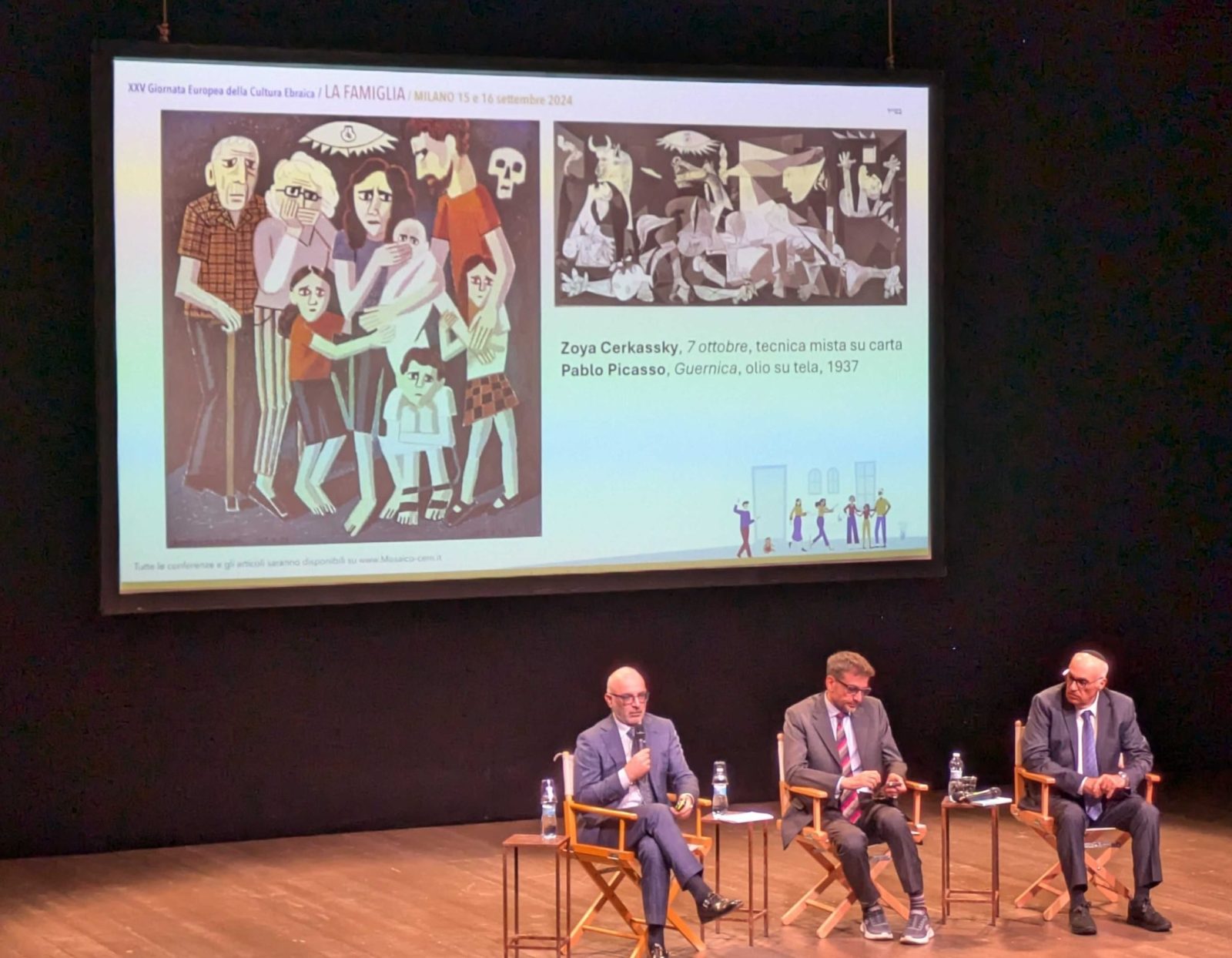MILAN – Questioning connections, a Jewish value

At the Teatro Franco Parenti in Milan, an impressive Zoya Cerkaasky’s work, titled October 7, was projected on the background. The Israeli artist’s piece evokes Pablo Picasso’s Guernica, a famous denunciation of war. However, Cerkaasky choosed to depict a family: their faces show the horror of the looming terrorist threat and the determination to stay united, as art critic Roberto Sorani explained. “This artwork embodies both profound sorrow and a message of hope. Grandparents, parents, children, and grandchildren embrace each other, and this connection represents our values. Despite everything, the Jewish family stay together. It has done so for centuries and will continue to do so,” Sorani recalled. On the European Day of Jewish Culture, Sorani was tasked with exploring the theme of family through art. “We aimed to showcase the different dimensions of the Jewish family using cinema, music, texts from our tradition, and literature,” explained Sara Modena, culture councilor of the Milanese Jewish Community. “Like all families, ours also have conflicts. But the beauty of Judaism is that through conflicts, we strive to uncover hidden truths,” remarked the artist Andrée Ruth Shammah, director of the Teatro Parenti. This theme of conflict was explored by Alfonso Sassun, who analyzed examples of complex father-son relationships in the Torah, from Abraham and Isaac to Jacob and Joseph with his brothers. “Their stories, in some cases, serve as warnings for us parents,” Sassun emphasized. “We must be careful in our dealings with our sons and remain fair; otherwise, we risk causing dysfunctions.”
Roberto Zadik discussed dysfunctional families through the ironic lens of American film director Woody Allen. “An Allen joke captures his view well: ‘When I was a child, my parents moved house about ten times. But I always managed to find them.’” With humor, Allen critically describes both the dynamics of a particular Jewish family and American bourgeois society. Luca Barbareschi’s film The Penitent, presented by the actor and director to the Parenti audience, also provided a critique of society. It was an opportunity for Barbareschi to emphasize the need to keep the art family alive and united. “Events like this, where we come together and discuss, are essential. This sense of shared values and thought must be preserved,” he said.
Finally, David Piazza and Ugo Volli guided the audience through passages of the Midrash to understand how the transmission of Jewish heritage often revolves around relationships between father and son, husband and wife, and siblings. “The Hebrew Bible is not just the story of humanity and the Jewish people; it is also a story of families. If you will, it is a ‘family novel,’” Piazza and Volli explained.
d.r.
